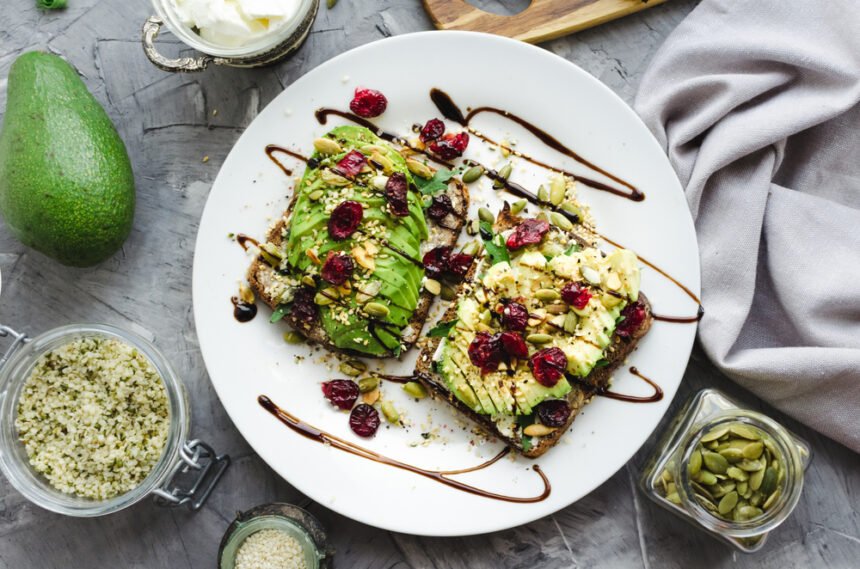Many people have decided to eschew meat in favor of a plant-based diet. Often, this change results in an array of health benefits. From higher energy to weight loss, vegan living can revolutionize nearly anyone’s lifestyle.
There are so many ways to do veganism. While you can totally treat yourself with decadent vegan junk food from time to time, focusing on a healthy, whole foods diet will always garner the best results. Your entire body is connected, and going plant-based can impact so many areas of your life. Plants are the foundation of any well-rounded diet, providing nutrients and energy that foster peak function of the mind and body connection.
1. Increased Energy Levels
Switching to a vegan diet often provides a boost of energy. One of the reasons for this is the increased carbohydrate intake that often accompanies veganism. Plant-based foods are naturally richer in healthy carbohydrates such as whole grains, fruits and even some beans.
Carbohydrates are the human body’s primary source of energy — so when you increase your intake, you’ll experience higher and more consistent energy levels. Foods rich in carbs include sweet potatoes, brown rice, bananas and oatmeal.
2. Nutrient Density
Healthy vegan diets are naturally more nutrient-dense than standard American fare due to the increase in healthy fruits, vegetables, grains and beans. Veggies have more vitamins and minerals per calorie than meat and animal products do. Beyond the vitamins, plant-based diets are richer in fiber, contain more natural sugars and provide healthier fats. Compared to plant foods, the calories from animal products are rather empty. When you get your fill from plants, it comes with so much more.
3. Heart Health
Plant-based diets can assist in protecting your heart health in so many ways. Conversely, the standard American diet often actively damaged this vital organ due to an overabundance of fat and cholesterol. Since consuming animal products like cheese, butter and red meat can increase your risk of heart disease, simply avoiding those foods can lower your risk.
In addition to the decrease in animal products in your daily life, going vegan can bring more fiber into your diet, which is linked to heart health.
Vegan diets also tend to be lower in calories, cholesterol and unhealthy fats. Plant-based foods don’t tend to contain as many saturated fats as animal products often do, which is much healthier for the entire cardiovascular system. With less risk for obesity and high cholesterol, your heart health will be in a much better place simply by switching to a plant-based diet.
4. Lowered Disease Risk
Eating a healthy plant-based diet can lower your risk for many diseases — some obvious, some a little more surprising. While eating vegan food that’s naturally lower in saturated fat clearly leads to a lowered risk of heart disease, it can also lower risk for Type 2 diabetes, high cholesterol and various forms of cancer. While genetics and other lifestyle choices will always play a role in disease risk, a healthy diet is a cornerstone of living with as little illness as possible.
Studies show that eating a plant-based diet lowers overall cancer risk by 15% compared to those who eat standard food. Specifically, veganism has shown promise in reducing the risk of prostate, colon and breast cancer. While much of the data surrounding the exact cancer types is still in the works, it’s clear that going plant-based can have a positive impact on disease risk.
5. Less Inflammation
Often, knowing which foods cause inflammation will vary from person to person. While everyone is different, there are a few specific foods that are known to cause inflammation and others that can contribute to it over time. Dairy is a common culprit in causing inflammation within the body, and removing it from your diet can lead to easier movement, a healthier respiratory system and even better skin. Red meat and eggs can also be culprits.
Adopting a vegan diet can even help prevent flareups in inflammation-related conditions such as arthritis. Studies show that eating a plant-based diet can help reduce arthritis-related pain and minimize symptoms like joint swelling and morning stiffness. Eating a plant-based diet rich in probiotics and hydrating raw fruits and vegetables can be especially helpful in curbing inflammation and controlling pain.
Getting Started
It’s clear that diving into a plant-based lifestyle can bring on a slew of positive changes. No matter where you are in your journey or what your diet looks like, it’s never too late to get started. You can begin by veganizing some old favorite recipes you love or transitioning slowly to get you settled into a diet filled with delicious and healthy whole-plant foods. When you feel the difference in your body, you’ll be ready to take on the world.








